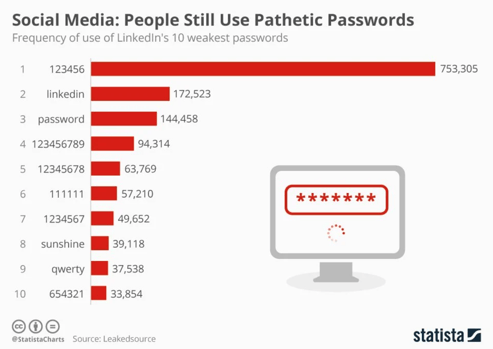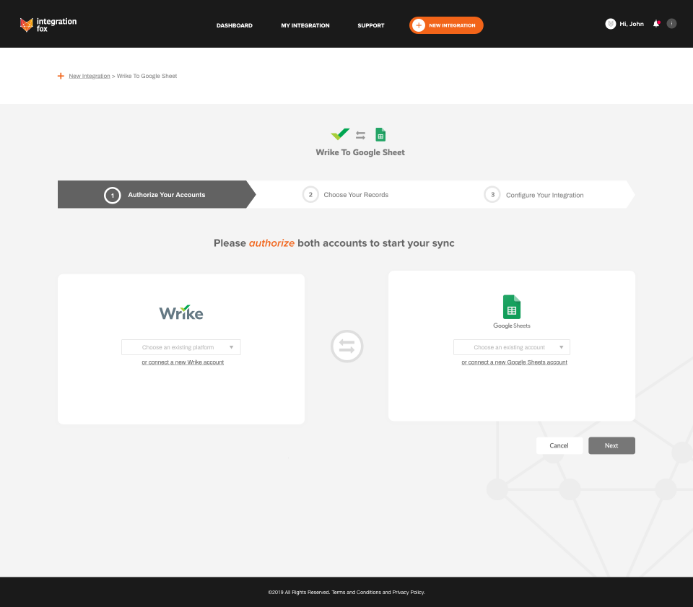Every business, regardless of size or industry, needs to prioritize their data security. In this blog, we cover what data security is, why it’s so important, and why it’s absolutely essential for your business to prioritize keeping your data secure.
What Is Data Security?
Data security refers to the measures you put in place to protect your digital data. From your customer database to your internal file storage, everything you do in your business has data attached, and you need to keep it safe from unauthorized access that could result in data breaches or cyber attacks.
Data security as a term covers a wide range of protection methods used to keep data safe, secure and private - whether it's for cloud storage, or securing online payments, or web browser and email security. Wherever there’s data, data security is needed.
Why Is Privacy Important to Business?
Never underestimate the importance of data security and privacy for your business - there are plenty of benefits to prioritizing data security:
Stay Protected Against Baddies
The first and most obvious benefit to data security - making it harder for people with ill intentions to damage your business. Just like you’d add additional security to your home, you want to ensure that hackers can’t just walk in the front door of your systems and steal your data.
And it isn’t just your own internal data such as employee details and financial records that you need to consider - hackers will also be trying to get your customer’s information so that they can target them too.
No one is exempt from data security risks - even huge social media platforms like LinkedIn have suffered from data breaches - in 2012 and 2016 the personal information of over 100 million user accounts was compromised, reportedly due to weak user passwords.

(If you use any of these passwords anywhere online, please go and update them now! Here’s some good advice for setting strong passwords.)
Build Trust With Your Customers
People are more aware than ever about consumer data privacy and that ‘big brother’ is always watching. Even though they are happy to share their location, opinions and photos on social media, and have Alexa or Siri listening to every word - they aren’t so keen on sharing personal data with corporations that can sell their data.
However, most people aren’t aware of all the less obvious ways a company can collect their information, for example when you visit a website, you’ll be providing information like your IP address and the page that referred you to the site.
Research from 2017 revealed that companies risk losing up to 55% of customers if they suffer a significant personal data leak, and that in industries like banking, insurance or utilities, in the event of a data breach, 30% of people would switch providers immediately. People don’t take security lightly, and you need to be prepared to protect your customer’s data so that you aren’t at risk of losing their business.
It's extremely important to assure your customers that their data is being handled, processed and stored securely. By taking steps to protect your customers’ privacy, you’ll build loyalty and trust with them, which will ultimately…
Improve Your Brand Value
The more customers trust your business, the more it will grow. Companies that make clear their dedication to protecting the privacy of their customers, and then follow through with transparent privacy practices, will build emotional connection with customers and improve brand value and credibility.
Share your privacy and data security policies and show how this supports your code of ethics - this will give you competitive advantage over businesses who aren’t taking their data security seriously. Find out more about the importance of data security here.
Why is data security important now more than ever?
2020 showed us how quickly things can change and that businesses need to be ready to adapt to a changing world faster than ever. Head over to our blog post on increasing your data security during COVID to learn more about how recent changes in the world are affecting data security.
There are plenty of changes you can easily make to enhance data security for your business:
Start with a security audit: Establish what data security you currently have and how you can improve it with better processes and systems. Review your hardware and software security, and think about how you store sensitive information that hackers might want to steal.
Implement company-wide security policies: Make sure everyone is following the same rules so you aren’t leaving holes in your security. Stronger passwords or 2-factor authentication are some really simple ways to reduce vulnerability to data breaches, and get your employees on board with understanding how they're an important part of your data security plan.
Limit export permissions: Check the permissions across all of your users to limit export functions - this will reduce the risk around disgruntled employees or compromised accounts stealing your data.
Keep your API and 3rd party app access secure: Regularly update your API keys, limit who can create API keys and connect platforms.
Check what data you are syncing: If you are already syncing data to a reporting platform or spreadsheet, regularly review what data is being synced and minimize the sync of any sensitive data. For example, it is pretty unlikely that you would need personal information like individual emails and phone numbers synced to a reporting platform, however we regularly see this type of data being synced! Review each data point, and be ruthless - if you don't specifically need it, don't sync it!
Talk to the professionals: If you want to get a handle on the safety of your data, trusting the professionals who live and breathe data security will take one more thing off your mind.
With the help of Integration Fox, you can sync data across platforms without having to worry about compromising your data integrity. We’d love to talk to you about how we can solve your integration challenges and increase your data security at the same time.
What are your biggest concerns around data security in your business?






